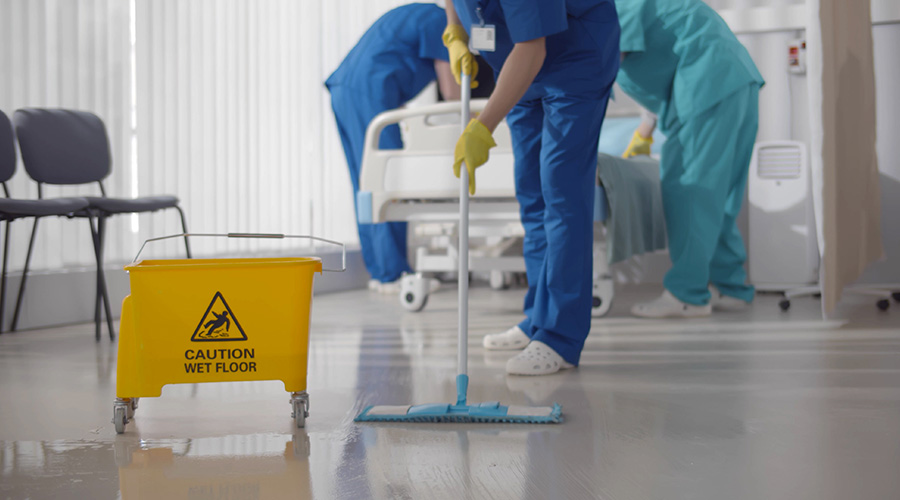To help prevent new cases of this deadly disease in healthcare facilities, CMS now expects all applicable Medicare certified healthcare facilities to have water management policies and procedures to reduce the risk of growth and spread of Legionella and other opportunistic pathogens in building water systems.
The Centers for Medicare & Medicaid Services (CMS) released a survey and certification memo last June stating requirements for healthcare facilities to develop and adhere to ASHRAE-compliant water management programs. These programs are meant to reduce the risk for Legionella and other bacterial and fungal pathogens associated with water systems.
Exposure to Legionella sources in healthcare environments is a particularly serious concern as the Centers for Disease Control and Prevention (CDC) reports that Legionnaires’ disease (LD) kills 25% of those patients who contract it from a healthcare facility. The agency also reports that about 80% of problems leading to U.S. healthcare-associated outbreaks could be prevented with effective water management programs.
The CMS memo states, “Those at risk include persons who are at least 50 years old, smokers, or those with underlying medical conditions such as chronic lung disease or immunosuppression. Outbreaks have been linked to poorly maintained water systems in buildings with large or complex water systems including hospitals and long-term care facilities. Transmission can occur via aerosols from devices such as showerheads, cooling towers, hot tubs, and decorative fountains.”
“Legionnaires’ disease is caused by breathing in water droplets or a mist from a water source contaminated with viable Legionella bacteria,” said Harry Pena, President of Zimmetry Environmental. “To help prevent new cases of this deadly disease in healthcare facilities, CMS now expects all applicable Medicare certified healthcare facilities to have water management policies and procedures to reduce the risk of growth and spread of Legionella and other opportunistic pathogens in building water systems. Among various expectations, surveyors are now expected to review policies, procedures and reports documenting water management implementation results to verify that facilities conduct a risk assessment to identify where Legionella and other opportunistic waterborne pathogens (e.g. Pseudomonas, Acinetobacter, Burkholderia, Stenotrophomonas, nontuberculous mycobacteria and fungi) could grow and spread in a facility’s water system.”
Helping healthcare providers in Puerto Rico and across the Caribbean comply with the CMS requirements are the experts from Zimmetry Environmental. They offer consulting services to develop and manage water management programs and Legionella testing services that are an essential part of a proactive plan and can also help to pinpoint the source of an outbreak if one has already occurred.
To learn more about Zimmetry’s air, water, environmental, occupational, and compliance testing and consulting services, please visit www.zimmetry.com.
 Contaminants Under Foot: A Closer Look at Patient Room Floors
Contaminants Under Foot: A Closer Look at Patient Room Floors Power Outages Largely Driven by Extreme Weather Events
Power Outages Largely Driven by Extreme Weather Events Nemours Children's Health Opens New Moseley Foundation Institute Hospital
Nemours Children's Health Opens New Moseley Foundation Institute Hospital Code Compliance Isn't Enough for Healthcare Resilience
Code Compliance Isn't Enough for Healthcare Resilience Ribbon Cutting Marks First Phase Completion for New Montefiore Einstein Facility
Ribbon Cutting Marks First Phase Completion for New Montefiore Einstein Facility